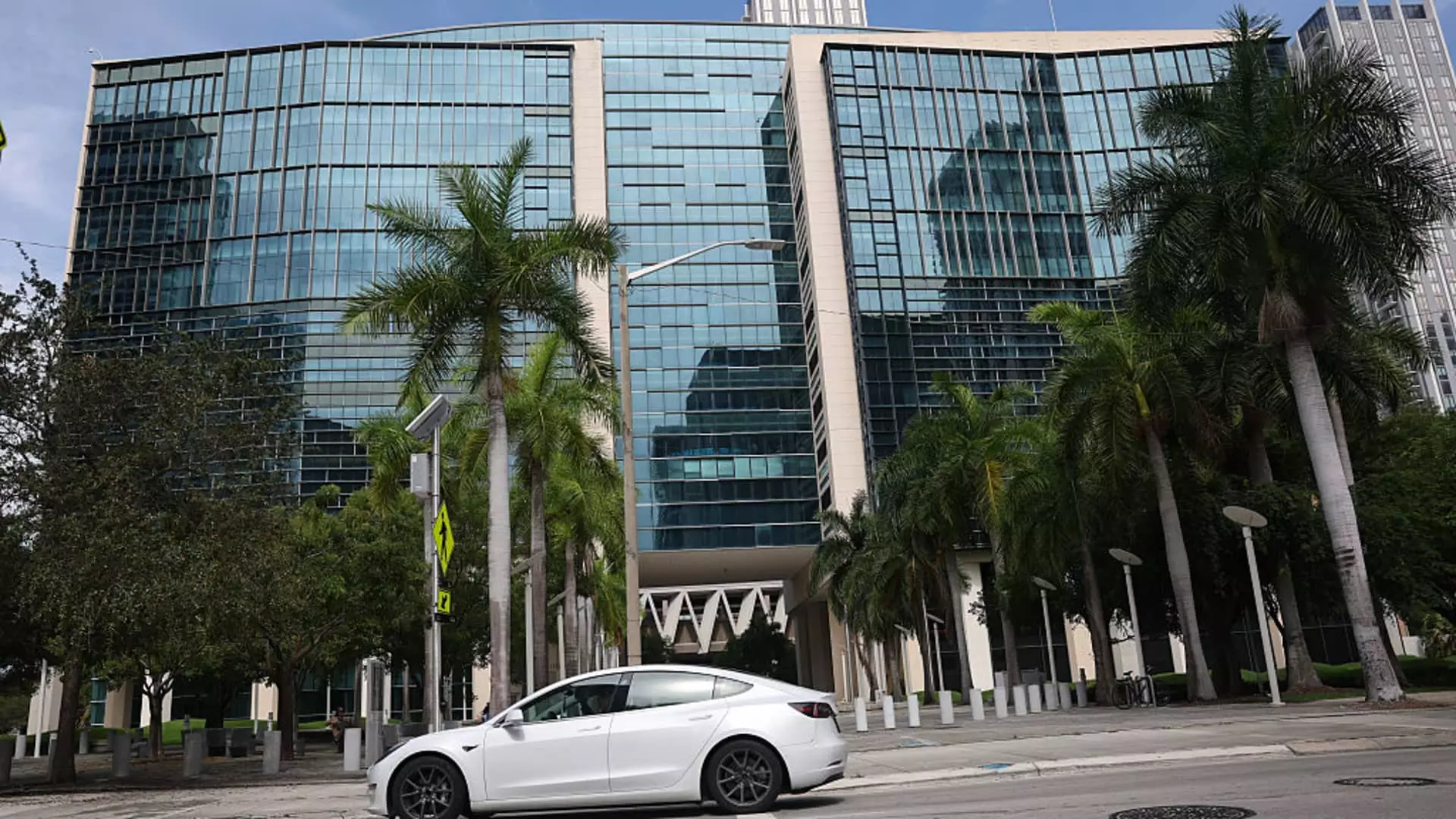In a dramatic turn that exposes the often-unseen risks of Tesla’s push toward autonomous vehicles, the upcoming verdict in Florida could redefine the narrative surrounding self-driving technology. This case isn’t merely about individual tragedy; it’s a litmus test for accountability, corporate transparency, and the ethical obligations automakers have toward consumers. As the first federal court trial targeting Tesla over a deadly Autopilot-related crash, it underscores a pressing need for scrutiny of the promises made by Elon Musk’s company and the safety claims presented to the public. The size of the damages—potentially topping $345 million—reflects the far-reaching consequences of negligence and misinformation, threatening to set a precedent that could ripple through the entire industry.
Questions of Safety and Responsibility
The case intricately ties human error, technological shortcomings, and corporate overconfidence into a tragic package. George McGee’s reliance on Autopilot to navigate unfamiliar situations turned fatal when his vehicle failed to respond as he expected, leading to the death of 22-year-old Naibel Benavides. The controversy revolves around whether Tesla’s marketed claims created a false sense of security that encouraged drivers like McGee to rely too heavily on automation. Ominously, allegations suggest that Tesla knew—or should have known—about defects in Autopilot that made it unsafe outside limited, controlled conditions.
This exposes a dangerous pattern of overpromising from a company eager to position itself as an industry pioneer in autonomous technology. The narrative pushed by Tesla’s defenders, emphasizing their technological advancements and the company’s efforts to improve safety, appears somewhat disingenuous in light of the plaintiffs’ claims. If Tesla knowingly marketed a system with inherent risks, their legal vulnerability intensifies, as does their moral responsibility. The issue boils down to corporate integrity and the need for rigorous safety standards—not expedient marketing strategies that inflate capabilities while concealing risks.
The Broader Implications for Industry and Society
While Tesla may portray this trial as an isolated incident, it reflects a systemic issue: the race to dominate the autonomous vehicle market often outweighs caution and thorough safety testing. Musk’s bold promises about Autopilot and full self-driving capabilities have cultivated a culture of dependency and overtrust among drivers. Such claims feed into a narrative that autonomous technology is closer to perfect than it truly is, which can have deadly consequences, especially when safety hazes behind overly optimistic marketing.
From a center-right perspective, this case underscores the importance of balanced regulation—enough to protect consumers without stifling innovation. It is reckless to dismiss concerns about software flaws by emphasizing technological progress alone; safety must always take precedence. The morality of profit-driven companies pushing the boundaries without transparent risk disclosures is questionable at best. The potential for corporate recklessness to end lives should serve as a warning—a red flag that technological advancements cannot come at the expense of fundamental safety and responsibility.
The Culture of Overconfidence and Misinformation
Tesla’s narrative has long been intertwined with ambitions that often verge on hype. Promises from Musk that Autopilot would soon achieve full autonomy, coupled with heavily marketed safety benefits, created an environment where many drivers believed they were in more capable hands than warranted. The lawsuit’s depiction of Tesla’s allegedly false statements raises significant ethical questions: Did the company prioritize shareholder growth and market dominance over transparent communication of risks?
This is where the manipulation of public sentiment becomes problematic. In a society that values transparency and accountability, exaggerated safety claims erode trust and increase the likelihood of danger. The failed oversight not only jeopardizes individual lives but also undermines public confidence in emerging technologies that, with proper regulation and honesty, could genuinely improve safety. The root issue lies not only with Tesla but with a broader industry culture that often favors hype over fact, risk over safety.
The Potential Turning Point: Justice or Industry Setback?
As the jury decides whether Tesla’s negligence warrants punitive damages, it sends a powerful signal to corporations: safety and truthfulness must outweigh commercial interests. If the court rules against Tesla, it could catalyze a significant shift in how autonomous vehicle systems are developed, marketed, and regulated. It might push automakers to adopt more rigorous safety protocols and transparent communication strategies, fostering a safer environment for drivers and pedestrians alike. Conversely, an outcome favoring Tesla could embolden other companies to push technological boundaries with less regard for safety, risking more tragedies in the pursuit of innovation.
This trial encapsulates a profound debate: can rapid technological progress coexist with the ethical responsibility to protect human life? From a pragmatic standpoint, it’s clear that unchecked overconfidence and misleading claims threaten to derail genuine progress. The Febrile atmosphere surrounding autonomous vehicles demands a careful, balanced approach—one that recognizes innovation’s promise but remains vigilant about its perils.
In sum, the outcome of this case will decide whether the industry is held accountable for creating dangerous illusions of safety or whether, instead, profit and progress continue to outweigh fundamental moral obligations. It’s a stark reminder that technological advancements are only as valuable as the safety they deliver—and that the time for reckoning is long overdue.

